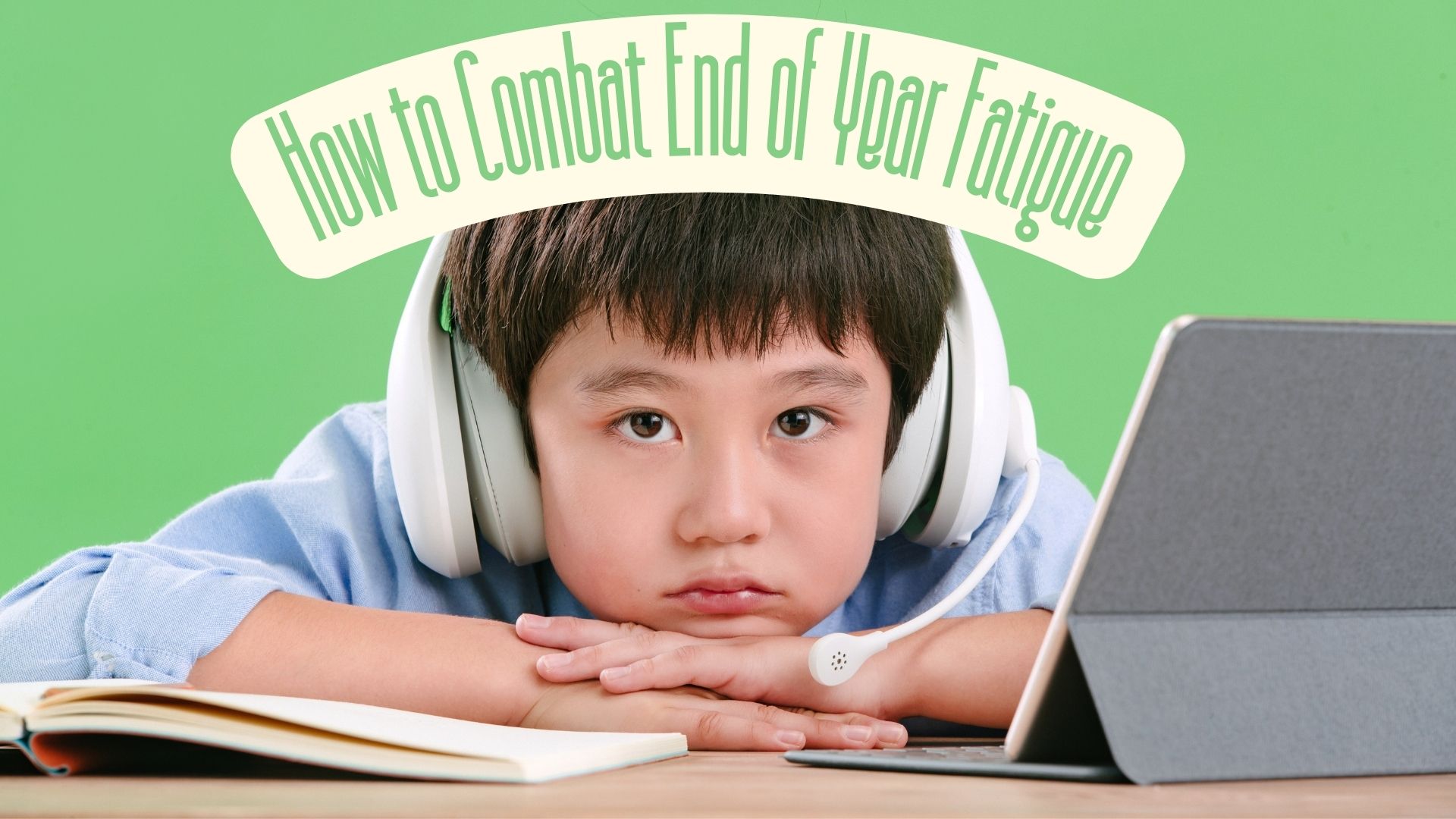Published by: Digital Schools
End-of-year fatigue with kids can be challenging, as the buildup of school work, extracurricular activities, and holiday stress takes a toll on their energy and mood. Here are some strategies to help combat this fatigue and keep things balanced:
Create a relaxed routine by simplifying the schedule and reducing non-essential activities. Kids often feel overwhelmed by too many commitments. Ensure consistent sleep times, making sure they get enough rest, which can sometimes slip in the busy end-of-year season. Build in downtime where they can relax or pursue low-energy activities like reading or drawing.
Focus on nutrition by offering balanced snacks to maintain energy, such as fruit, nuts, yogurt, and whole grains. Limiting sugar can help avoid crashes in energy and mood. Encourage them to drink water throughout the day to stay hydrated.
Establish a positive morning routine with smooth transitions. Starting the day on a positive note with a calm and predictable morning routine can make a big difference. Playing music, giving extra cuddle time, or having a small ritual, like sharing gratitude, helps set a positive tone.
Incorporating breaks for physical activity is essential. Short breaks for play or physical movement, even just 10–15 minutes, can help kids release pent-up energy and improve their focus. Spending time outdoors in nature or playing outside helps them reset mentally and physically.
Acknowledge their feelings by asking how they’re feeling about the school year coming to an end. It’s important to recognise any stress or worries they may have and let them know it’s okay to feel tired or overwhelmed. Show empathy and remind them they’re not alone in feeling fatigued.
Help them break tasks into manageable chunks. Whether it’s schoolwork, holiday preparations, or year-end projects, breaking them down into smaller parts can help avoid burnout. Celebrate small accomplishments along the way, whether it’s finishing homework or helping with household tasks, to keep motivation up.
Encouraging mindfulness and relaxation can also make a big difference. Introduce quiet time with deep breathing, mindfulness exercises, or guided imagery to help them relax and reset. Wind-down activities like reading together or doing puzzles before bedtime help them calm down before sleep.
Prepare for transitions by talking openly about what’s coming next. If your child is anxious about the end of the school year or transitioning into summer or the next grade, offer reassurance and help them see the positive aspects. You could also create fun end-of-year traditions or small celebrations to shift their focus from fatigue to joy.
Finally, model self-care by taking care of yourself and showing your children how to manage stress and fatigue with healthy self-care practices. Kids pick up on your energy, so when you are balanced, they are more likely to feel grounded too.


